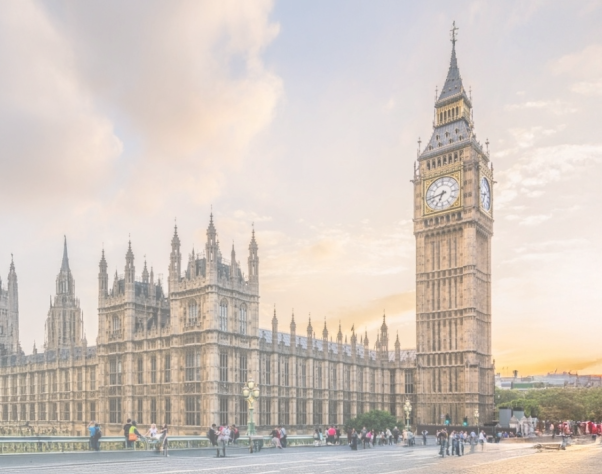Irish Budget 2021: A stopgap to keep the economy afloat in short-term uncertainty
On Tuesday (13 October) the Irish Minister for Finance Paschal Donohoe and Minister for Public Expenditure and Reform Michael McGrath delivered a once in a generation Budget that was the result of an unusual mix of circumstances. Two important worst-case scenario assumptions were made from the outset which framed this as an unprecedented stimulus Budget. Firstly, that the UK and the EU will not reach a trade agreement by the end of 2020 and that there will be severe commercial disruption from 1 January 2021 as a result; and secondly, that we will be “living with Covid-19” (as the Government ominously put it) well into 2021.
For the Government, both of these circumstances justify the delivery of largescale support packages to help those sectors especially in the firing lining of Covid-19 restrictions and trade disruption due to the next phase of Brexit. However, this year’s Budget must also be framed within the context of the new policy direction from the EU and the reversal of almost a decade of constraints on fiscal spending and deficit-financed spending. Free to substantially borrow to pay for public support initiatives, Minister Donohoe delivered a Budget that principally looked at the one-year timeline and was, as he termed, “a bridge to that better future”.
It did not go far enough for the main opposition party, Sinn Féin. Finance Spokesperson Pearse Doherty detailed how his party would spend €5.3 billion more than the Government plans to in Budget 2021, arguing that “now is not the time for fiscal conservatism”. In the current climate, there were few voices across the board who felt it went too far.
Supporting public services under strain from the pandemic
A constant theme throughout this year, managing the Irish health system remains a number one priority of the Government. Donohoe was quick to stress that the aim of this budget is to rapidly build up healthcare capacity as we approach the winter months. An extra €4 billion has been set aside for the health service. This will resource capacity for the Government target of 100,000 tests a week, supply PPE where needed, and continue into 2021 all of the necessary Covid-19 Action Plan measures which have been put in place since March.
Recent months have presented exceptional challenges for the education system, while the Government is determined to ensure primary and secondary schools across the country remain open where possible. The 2021 allocation for the Department of Education is €8.9 billion, with the lion’s share of additional funding focused on increased teacher capacity. It will allow for the hiring of 990 additional Special Needs Assistants (SNAs) and 403 additional teaching posts.
There was little tinkering of the key social welfare initiatives and incremental additional measures were given to the Living Alone Allowance; Fuel Allowance; Qualified Child Payment; Carer’s Support Grant; and the Pandemic Unemployment Payment. This Budget concentrated on whole public sector supports, rather than reinventing the welfare system and structures.
Maintaining business supports until circumstances change
This Budget is not the first stimulus package since the pandemic began and Donohoe recapped on the July Stimulus Package and the Credit Guarantee Scheme, as well as the Strategic Banking Corporation of Ireland (SBCI) Working Capital Scheme that is currently in place. The flagship Recovery Fund, as agreed by the coalition partners when the new Government was established now stands at €3.4 billion. It remains the primary well in which funding for infrastructure development, reskilling and retraining, supporting investment and jobs will be sourced.
Implemented at the start of the pandemic, the Temporary Wage Subsidy Scheme is increasingly less temporary. Donohoe announced an extension until March 2021 with “no cliff edge to this vital scheme” thereafter. Ibec, Irish largest business organisation, welcomed the move claiming it is an important first step in getting the economy back on its own feet and it “will undoubtedly provide a lifeline to many businesses in the sector struggling to stay afloat”.
There were new initiatives in the list of announcements on upgrades to current schemes. The Covid Restrictions Support Scheme (CRSS) is designed to assist those businesses whose trade has been significantly impacted or temporarily closed as a result of the restrictions set out in the Government’s ‘Living with Covid-19’ Plan. The scheme will generally operate when Level 3 or higher is in place and will cease when restrictions are lifted. For these businesses, the Government will make a payment, based on their 2019 average weekly turnover.
Ireland in external affairs
Away from the malaise of Covid-19, there was just enough time to touch on other big-ticket items for the Irish Government. On the back of new climate action legislation, the Government is steadfast in its commitment to ramp up the cost of carbon intensive practices. Carbon tax will be increased by €7.50 from €26 to €33.50 per tonne/CO2. Legislation will be provided in the Finance Bill to increase the tax each year by €7.50 up to 2029 and by €6.50 in 2030 to achieve €100 per tonne. Importantly, the move to enshrine this annual increase in the Finance Bill will allow the Government to make the increase without requiring a yearly vote in the Dáil.
Although omnipresent throughout, the Government is increasingly at pains to ensure that Brexit does not fall off the radar of businesses. €340 million of expenditure will be spent on Brexit supports in 2021. This includes an additional allocation for compliance expenditure in 2021 to finalising work at ports and airports, as well as providing for around additional 500 staff, bringing the total provision for approximately 1,500 operationalising checks ahead of 1 January 2021. However, Brexit has undoubtedly taken a backseat to Covid-19 this year and there remains a nervousness that if trade negotiations were to come to nothing, there would be a prolonged “era of great uncertainty and increasing risk”, as the Minister put it.
Often a thorny issue for Ireland in international affairs, especially in Brussels, Donohoe also sought to address the recent development in the harmonisation of international corporate tax regimes. The Minister aimed to reassure multinationals headquartered in Ireland that the current corporation tax of 12.5% will remain. However, and possibly with one eye on his role as Eurogroup President, Donohoe sought to engage with the OECD BEPS Inclusive Framework process on how to address the tax challenges of digitalisation. Work remains to be done at OECD level, but the Minister forewarned that “what is certain however is that change is inevitable”.
This Budget should not be viewed as a stand-alone breakthrough in repairing the economy from the disturbances of 2020 and potential havoc ahead. There will be a National Economic Plan next month which will map out a plan for an “economic resilient post-Covid world” for the coming years. Where there is so much uncertainty on where we will be as a society in just a few months from now, this Budget was focused on the short-term – in ensuring the double torpedoes of Covid-19 and Brexit do not sink the ship.



